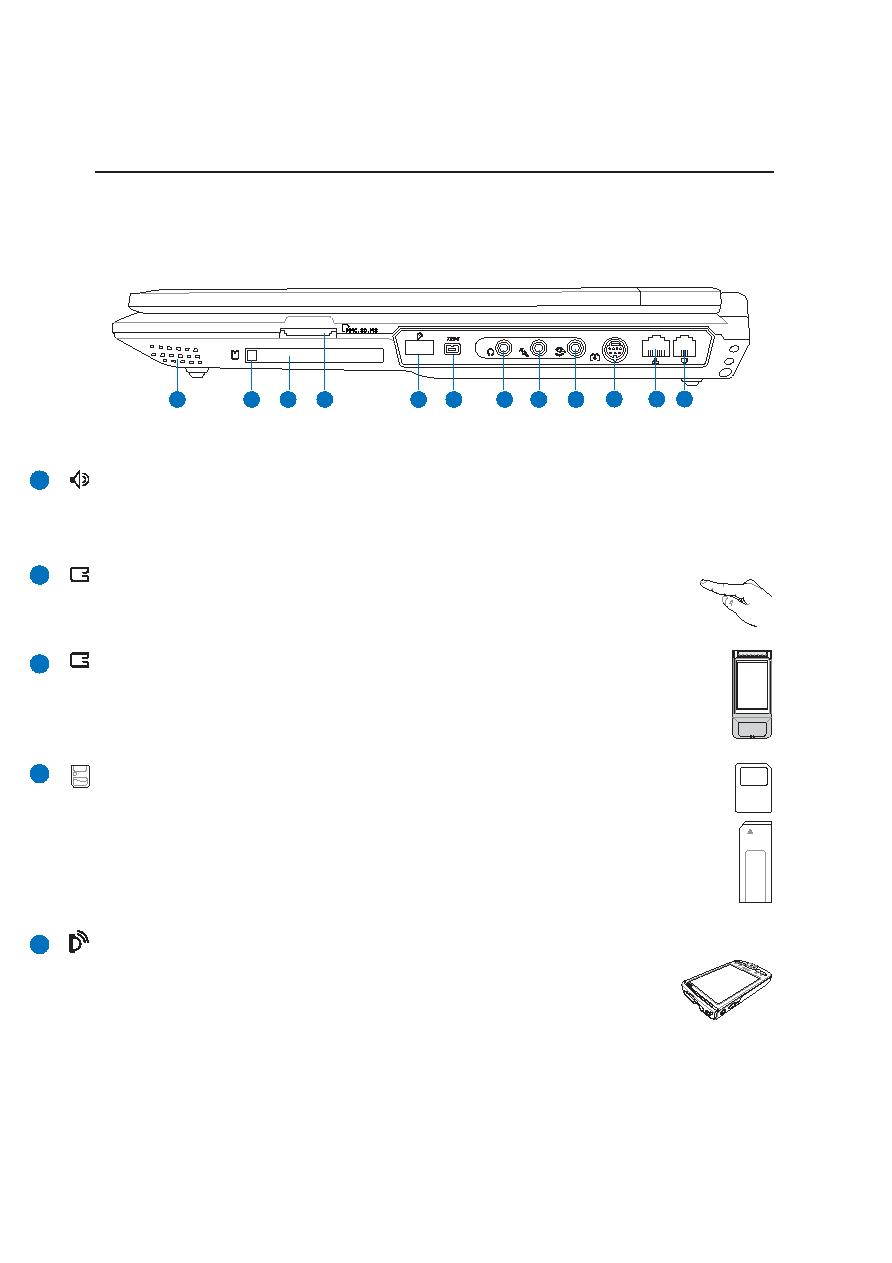
16
2 Knowing the Parts
Right Side
Refer to the diagram below to identify the components on this side of the Notebook PC.
1
2
4
3
5
7
6
8
9
10
11
12
PC Card Slot
One PCMCIA 2.1 compliant PC Card socket is available to support one type I/II PC card. The
socket supports 32-bit CardBus. This allows accommodation of Notebook PC expansion op-
tions such as memory cards, ISDN, SCSI, Smart Cards, and wireless network adapters.
PC Card Eject
Use this button to eject optional PC cards. This button is mechanical (not electronic) so a
small force is required and the Notebook PC does not have to be turned ON to eject PC cards.
5
1
2
3
4
Flash Memory Slot
Normally a PCMCIA or USB memory card reader must be purchased separately in order to
use memory cards from devices such as digital cameras, MP3 players, mobile phones, and
PDAs. This Notebook PC has a built-in memory card reader that can read many flash memory
cards as specified later in this manual. The built-in memory card reader is not only conve-
nient, but also faster than most other forms of memory card readers because it utilizes the
high-bandwidth PCI bus.
Stereo Speakers
The built-in stereo speaker system allows you to hear audio without additional attachments. The multi-
media sound system features an integrated digital audio controller that produces rich, vibrant sound
(results improved with external stereo headphones or speakers). Audio features are software controlled.
Infrared Port (IrDA) (on selected models)
The infrared (IrDA) communication port allows convenient wireless data communication
with infrared-equipped devices or computers. This allows easy wireless synchronization
with PDAs or mobile phones and even wireless printing to printers. If your office supports
IrDA networking, you can have wireless connection to a network anywhere provided there
is a direct line of sight to an IrDA node. Small offices can use IrDA technology to share a printer between
several closely placed Notebook PCs and even send files to each other without a network.

